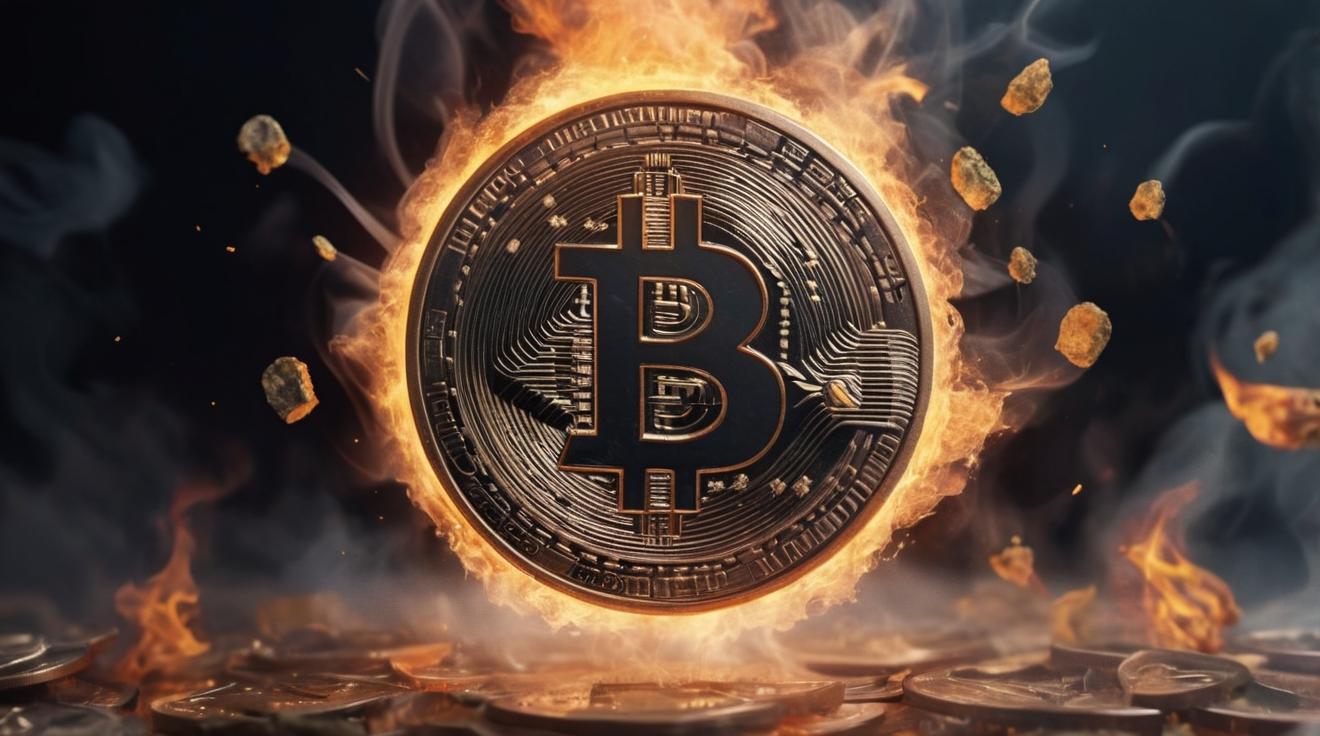## **Bitcoin - The Dollar Falters**
**The IMF** has published its quarterly update on **foreign exchange reserves** held by **central banks**. The **dollar** is described in a sustained decline despite still being the primary reserve currency. With its share falling from 70% two decades ago to around 55% today, could **Bitcoin** be an alternative?
### **The Dollar Falls into Obsolescence**
The **IMF** notes that **economic** and **financial fragmentations** are encouraging **countries** to diversify their foreign exchange reserves away from the dollar. The **dollar’s share** in global reserves has seen a "gradual" drop, a term that might actually understate the situation. When adjusted for recent appreciations, that share is closer to 55%.
**Gold** emerges as a serious contender. Financial sanctions are making central banks adjust their portfolios ***away from currencies that risk being frozen, in favor of gold.*** Nations like **India** have moved 100 tons of gold back home, indicating gold’s growing role in the new international monetary setup envisioned by **BRICS**. According to Iran's Foreign Minister, BRICS is close to ***completing their de-dollarization program***. However, the pivot currency to replace the dollar remains a mystery.
### **Contenders for the Throne?**
**IMF** points out that the reduction in the role of the **US dollar** hasn’t led to an increase in the share of other major currencies like the **euro, yen**, or **pound**. Instead, non-traditional reserve currencies such as the **Australian dollar, Canadian dollar, Chinese yuan, South Korean won, Singapore dollar**, and **Nordic currencies** are emerging. The **Chinese yuan** shows strong potential as an international payment medium despite signs of fatigue in its internationalization.
The **CIPS** (Cross-Border Interbank Payment System) facilitated transactions worth 123 trillion yuan ($17 trillion) in 2023, underscoring the yuan’s growth despite its declining share in foreign exchange reserves since 2022.
### **The Sino-Russian Axis and Bitcoin**
The **Russian central bank** recently declared the **Chinese yuan** as Russia’s main foreign currency. The yuan/ruble exchange rate now influences all other currency pairs, including the euro and the dollar. The **Bank of Russia** noted that ***56% of trades on the Moscow Exchange in May involved the yuan***, a percentage expected to grow with the complete ban of the euro and the dollar following new Western sanctions.
This trend aligns with the inclusion of **Saudi Arabia, United Arab Emirates,** and **Iran** in the **BRICS** bloc, signaling the near end of the **petrodollar** era. All this complexity is met with concerns from the United States, involving significant geopolitical tensions, including the Taiwan issue.
Central banks holding dollars (mostly in **Treasury bonds**) enjoy several advantages:
- **Chronic trade deficit versions without dollar devaluation.**
- **Low borrowing rates.**
- ***The ability to impose financial sanctions via the SWIFT network.***
### **Bitcoin: The Neutral Currency?**
Amidst all this, could **Bitcoin** be the solution? The **Industrial and Commercial Bank of China** recently recognized Bitcoin's rarity, ***comparable to gold through mathematical consensus while solving divisibility, authenticity, and portability issues.***
We might be heading towards a new **Bretton Woods** era, with **Bitcoin** playing a crucial role.
*DISCLAIMER: The views, thoughts, and opinions expressed in this article belong solely to the author and should not be taken as investment advice. Conduct your own research before making any investment decisions.*
Bitcoin Rises as Dollar Falters: Yuan Gains Internationally

John Darbie is a seasoned cryptocurrency analyst and writer with over 10 years of experience in the blockchain and digital assets industry. A graduate of MIT with a degree in Computer Science and Engineering, John specializes in blockchain technology, cryptocurrency markets, and decentralized finance (DeFi). His insights have been featured in leading publications such as CoinDesk, CryptoSlate, and Bitcoin Magazine. John’s articles are renowned for their thorough research, clear explanations, and practical insights, making them a reliable source of information for readers interested in cryptocurrency. He actively follows industry trends and developments, regularly participating in blockchain conferences and webinars. With a strong reputation for expertise, authoritativeness, and trustworthiness, John Darbie continues to provide high-quality content that helps individuals and businesses navigate the evolving world of digital assets.












